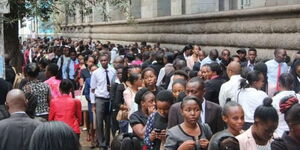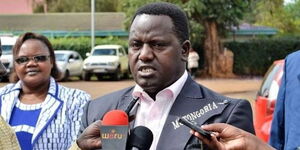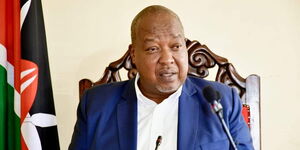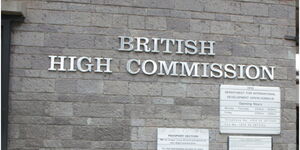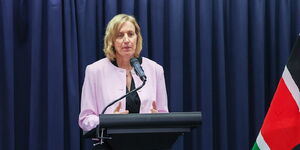The World Bank's advisory to Kenya to consider raising some consumption taxes, including excise duty and value-added tax (VAT), has sparked backlash from lobby groups and Kenyans who warn that such measures could worsen the cost-of-living crisis.
In its latest advisory, the global lender has linked the proposal to Kenya's rising pending bills, which increased from Ksh421.6 billion in March to Ksh526 billion by June this year.
The proposal has drawn sharp criticism from the Motorists Association of Kenya (MAK), which accused the World Bank of advancing policies that prioritise debt repayment over the welfare of citizens.
In a statement issued on Thursday, MAK said the move would further strain households already struggling under high inflation and stagnant incomes.
''The World Bank is at it again, pushing the government to impose more VAT and excise taxes when Kenyans are already battling a high cost of living,'' the association said. ''Many of these directives are tied to loans for projects that are poorly implemented or completely phantom, yet the ordinary Kenyan bears the cost.''
MAK revisited the 2018 protests against the introduction of VAT on fuel, which it said were triggered by World Bank pressure, claiming that the move led to inflation, job losses, and business closures, and warning that a repeat of such policy could destabilise the economy.
''Every time the World Bank talks about fiscal discipline, it means squeezing citizens while protecting multinational interests. Government jobs and local spending are not the problem. Destroying them under the pretext of austerity only deepens poverty.''
Additionally, the group also blamed the World Bank for shaping economic programmes that led to public sector layoffs, arguing that these measures reduced domestic demand and pushed many Kenyans to seek employment abroad under difficult conditions.
At the same time, Lawyer Peter Wanyama and other Kenyans on social media also criticised the proposal, arguing that the focus should be on fiscal discipline within government rather than higher taxes.
''Why should VAT be increased? The best solution is to cut graft and wasteful projects and downsize government. Higher taxes will only burden citizens while fuelling wasteful spending,'' Wanyama said.
Wanyama added that if the World Bank wants to help Kenya achieve sustainable growth, it should push for genuine reforms that address inefficiencies instead of encouraging tax hikes that only end up harming the poor.
With Kenya currently charging 16 per cent VAT on items such as fuel, cooking gas, and electricity, the standoff now shifts to the Treasury, which faces mounting pressure to balance between meeting its debt obligations and protecting Kenyans from additional economic hardship.
Meanwhile, the Washington-based lender did not clarify whether it was recommending an increase in VAT and excise duty rates or a broadening of the taxable base to include more goods and services.


